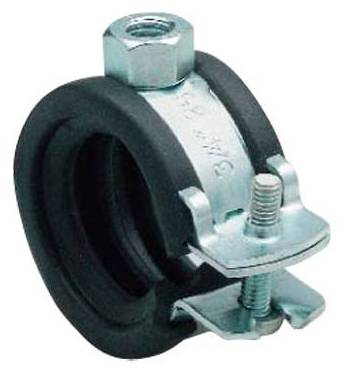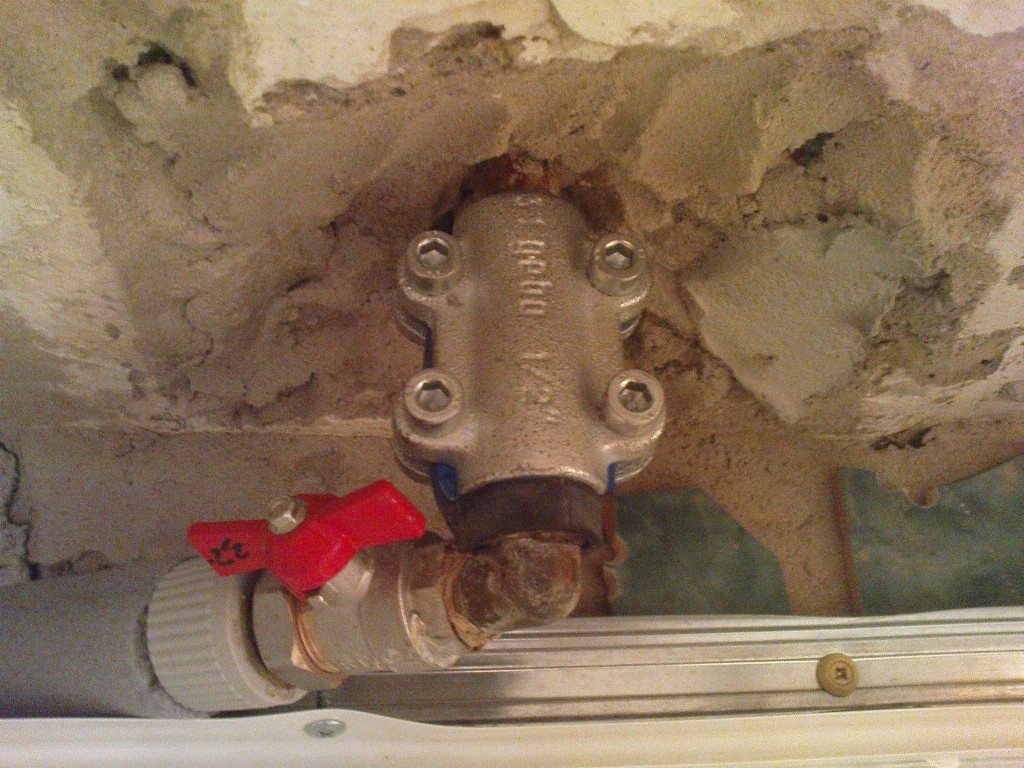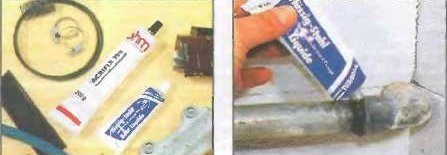As a rule, in most cases, steel pipes are used for residential heating. Due to certain advantages and advantages of these pipes, a huge number of users prefer to buy steel pipes for heating.
However, along with all the advantages, these pipes have one significant disadvantage - susceptibility to corrosion. As a result, over time, users may encounter the unpleasant fact that a heating pipe is flowing in a certain place.
It is quite natural that in such a situation, for any user, the question of how and with what to seal a leak in a heating pipe becomes relevant. If it is not repaired in time, this can lead to more serious consequences, and ultimately to the need to replace the entire pipe or even the entire heating system as a whole.
Agree, this is a more costly and time-consuming option, so it’s better to solve a “small” problem in time than to let it grow into a big one.
A heating pipe is leaking: possible causes and places of occurrence
The reason for the appearance of a leak in a heating pipe is usually associated with the effect of corrosion on the metal (if we are talking about metal pipes). On the inside of the pipes, water that is constantly in the system, and on the outside - exposure to moisture and temperature fluctuations can lead to corrosion, as a result of which the pipe can leak in a certain place (where it was most susceptible to corrosion).
Many are interested in the question of whether a leak can appear if, say, polyethylene pipes are used for heating? After all, they do not corrode like metal. Of course, the risk of a leak is less here, and the reasons can already be called others.
Say, polyethylene, as well as can form a leak if they are not properly selected.
This problem is very often faced by people who decide to save money on installing the system and buy pipes designed for cold water. The fact is that under the influence of hot water, such pipes can deform, swell or burst, thereby causing a lot of harm to both your home and your neighbors. And in the end, the savings will turn out to be zero, since after the end of the heating season, such pipes will have to be changed again.
Those users who have chosen metal-plastic pipes for heating are not 100% immune from such a problem, since they can also leak, which must be eliminated, otherwise you can harm not only yourself, but also flood your neighbors from below.
The pipe can leak anywhere:
- on a flat section of the pipe;
- at the junction of pipes (connecting fittings or threaded connections);
- at the junction of the battery sections.
Naturally, the method of sealing a leak depends on where it was formed.
About ways to fix leaks
With how and why a leak can form in the heating pipe, we figured it out. But after all, the most important question remains unaddressed: how to close up a leak in a heating pipe? There are several ways and options for sealing heating pipes in places where a leak has appeared.
Consider how you can close the leak:
- On a flat section of the pipe, you can use the old and proven method: wrap the leak with a piece of soft rubber and tighten it tightly with wire or clamps. The main thing is that the width of the wound rubber should be several centimeters larger than the size of the damaged section of the battery.
This will reliably eliminate leaks from the pipe and maintain the "suitability" of the pipe until the end of the heating season, when you can slowly carry out all the pipe replacement work.

- Buy a factory bandage, which already has both a sealing gum and clamps for clamping, do the procedure for sealing the leak in the same way.
- If a leak occurs at the junction of the heating pipe (using fittings or a threaded connection), then the task of sealing is somewhat more difficult, since there may be a different diameter of the heating pipe.
Alternatively, in the factory bandage for clamping, you can replace the sealing gum with a regular oblong piece of rubber. It must be wound around the pipe and fitting so as to compensate for the difference in size, then the rubber is pressed in with a clamp.
And although the clamp becomes slightly skewed, it still reliably compresses the problematic area of \u200b\u200bthe pipe, thereby eliminating the leak.

- If a leak has formed at the junction of sections, is small, then the following method can be called a temporary solution to the problem: it is necessary to bandage the damaged area with a cloth that is well saturated with any moisture and heat-resistant adhesive (for example, epoxy glue).
As soon as the fabric with glue hardens, the leak will be reliably eliminated. - You can also use special sealant for heating pipes, "cold welding" and other methods of sealing pipes that contain hot water under pressure.

Remember: all the proposed methods are temporary in order to eliminate the problem, so that in the future your heating system will work with maximum efficiency, after the end of the heating season, you need to replace the damaged pipe sections or overhaul them.
What time of year to repair?
If you notice what is dripping from the heating pipe, then regardless of what season it is (heating or summer), you do not need to wait until the damage site becomes larger in size or winter comes and water begins to flow from the gap. You must immediately repair the damaged area, replace the pipe, or think about replacing the entire heating system as a whole (of course, if your budget allows), for example.
Rehau heating pipes have proven to be excellent. They are suitable for operation in the conditions of our "domestic" heating system and give their owners a minimum of trouble for the entire period of use (subject to all the rules of their installation and operation).
During the period when the heating is not yet functioning, it is, of course, easier to repair and replace pipes, but this does not mean at all that if a leak is detected in winter, nothing needs to be done. A heating pipe leak must be fixed as soon as possible after detection!
Regular monitoring of the condition of heating pipes, immediate elimination of any malfunctions will protect you from unpleasant surprises and even emergencies.
